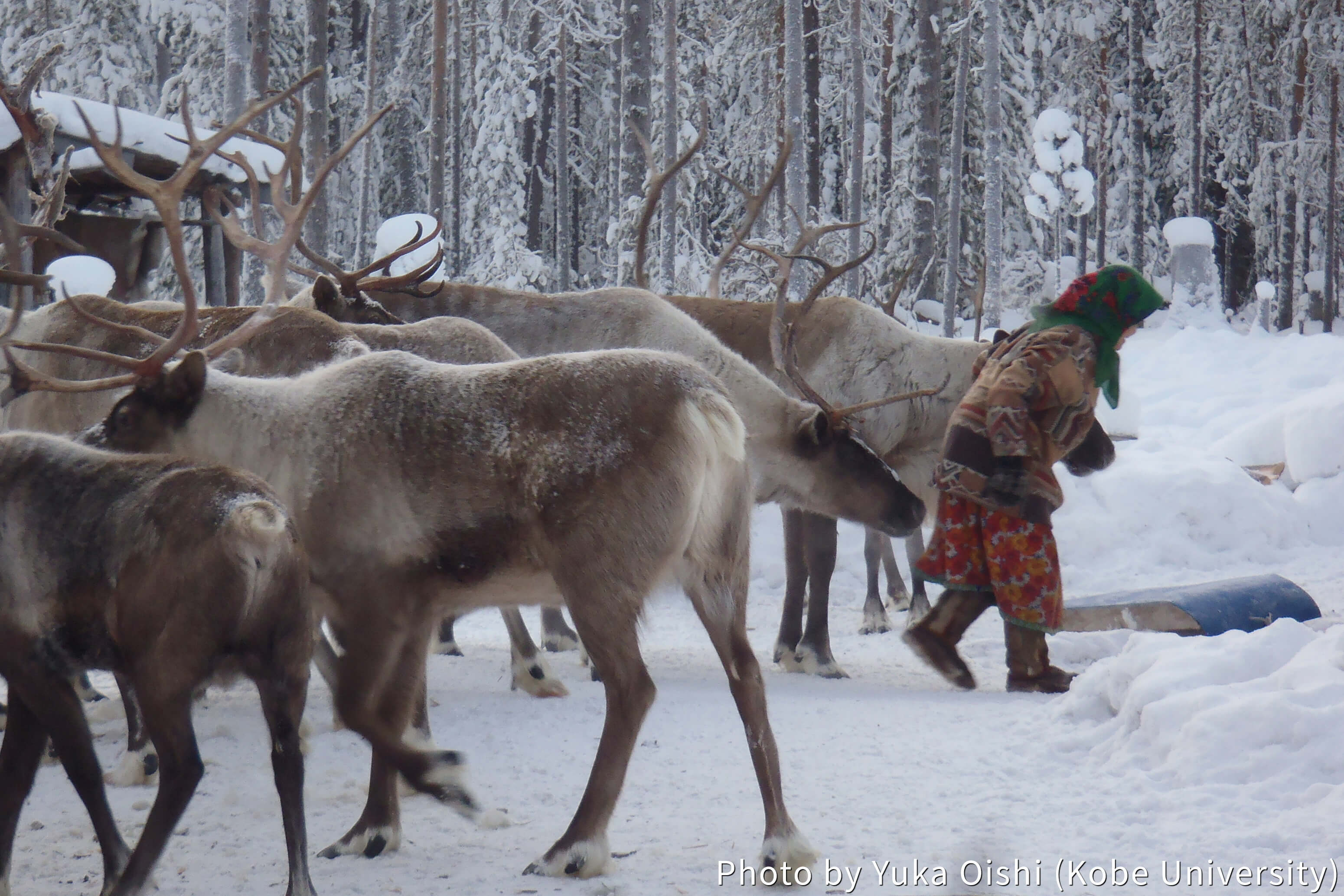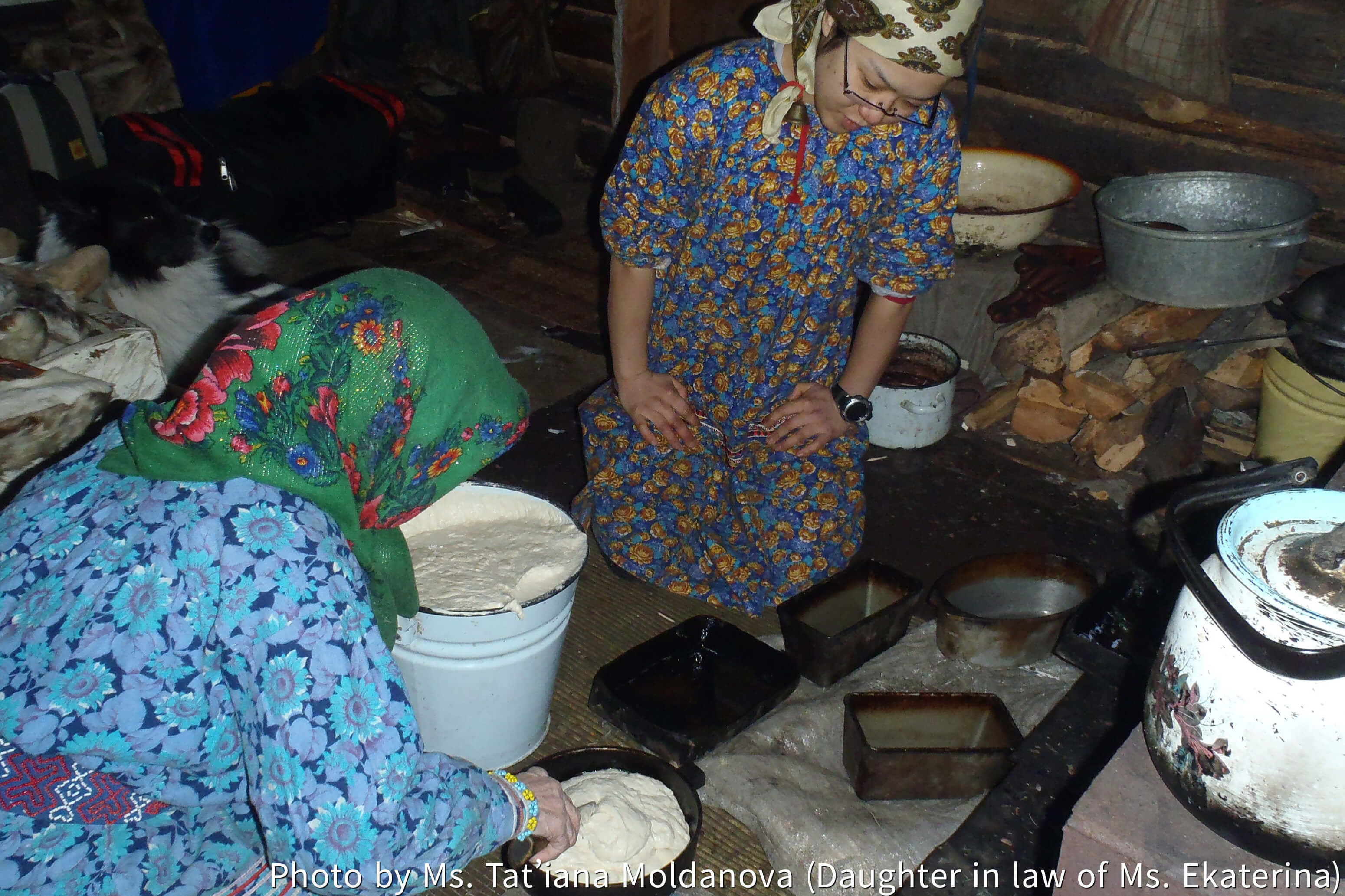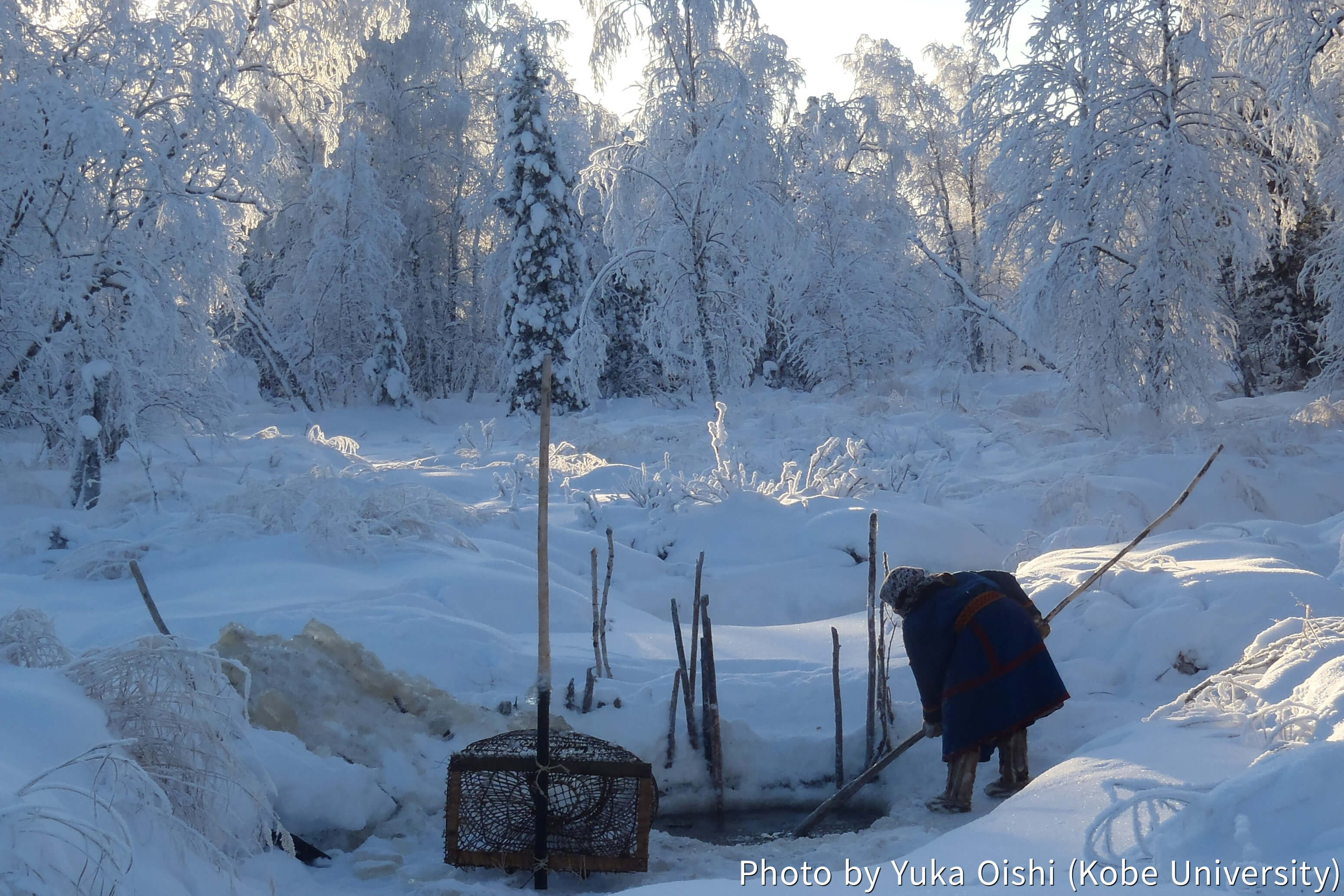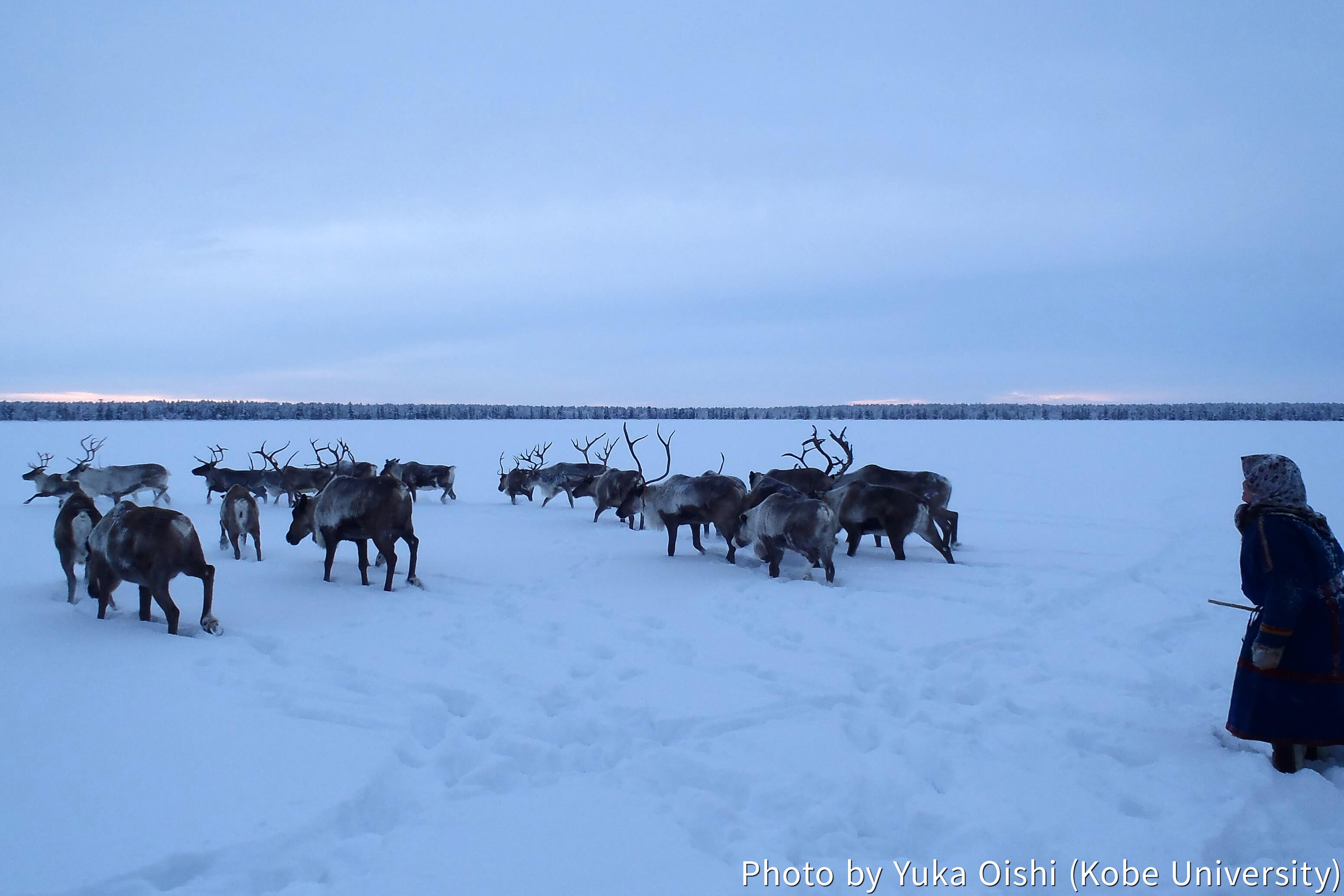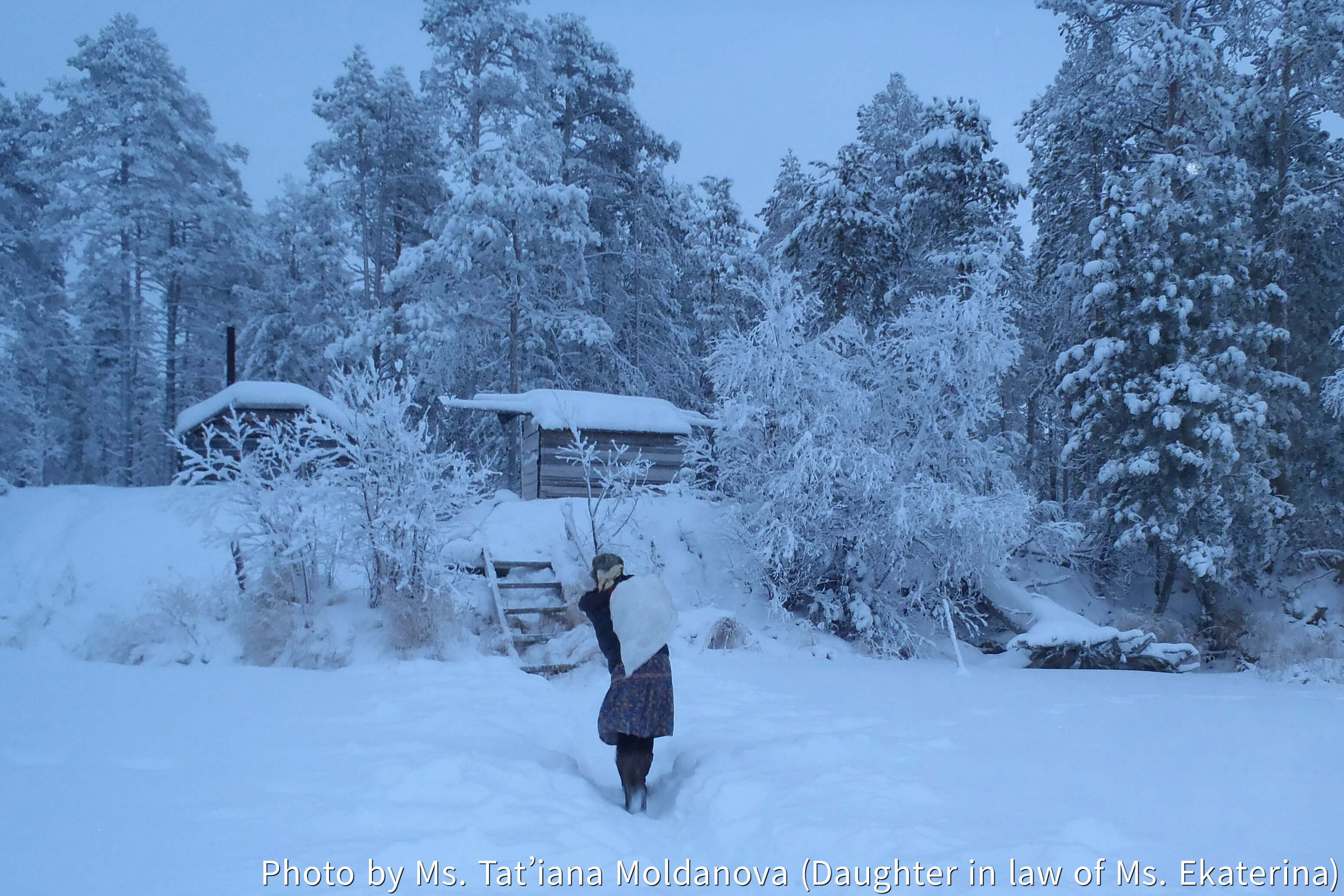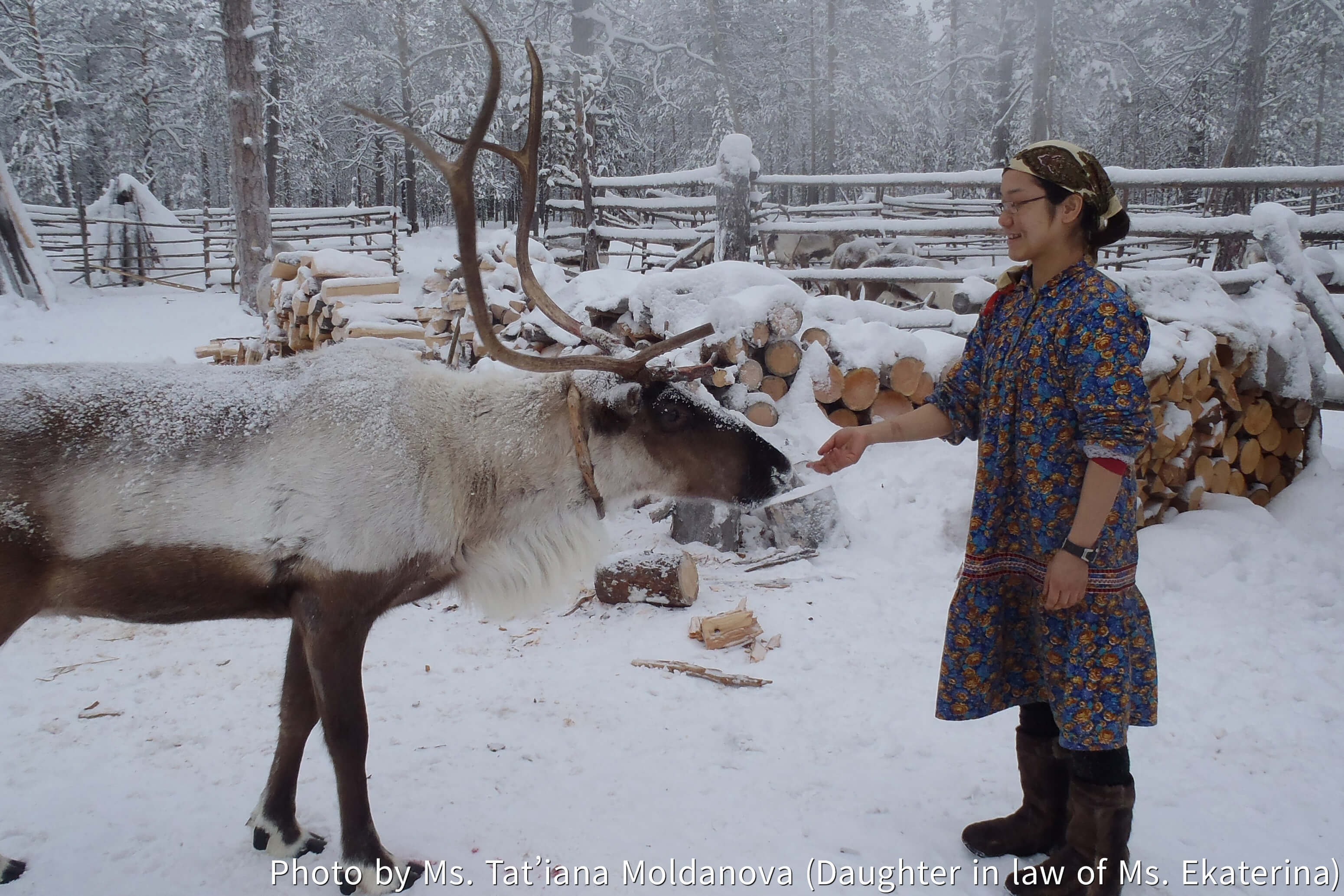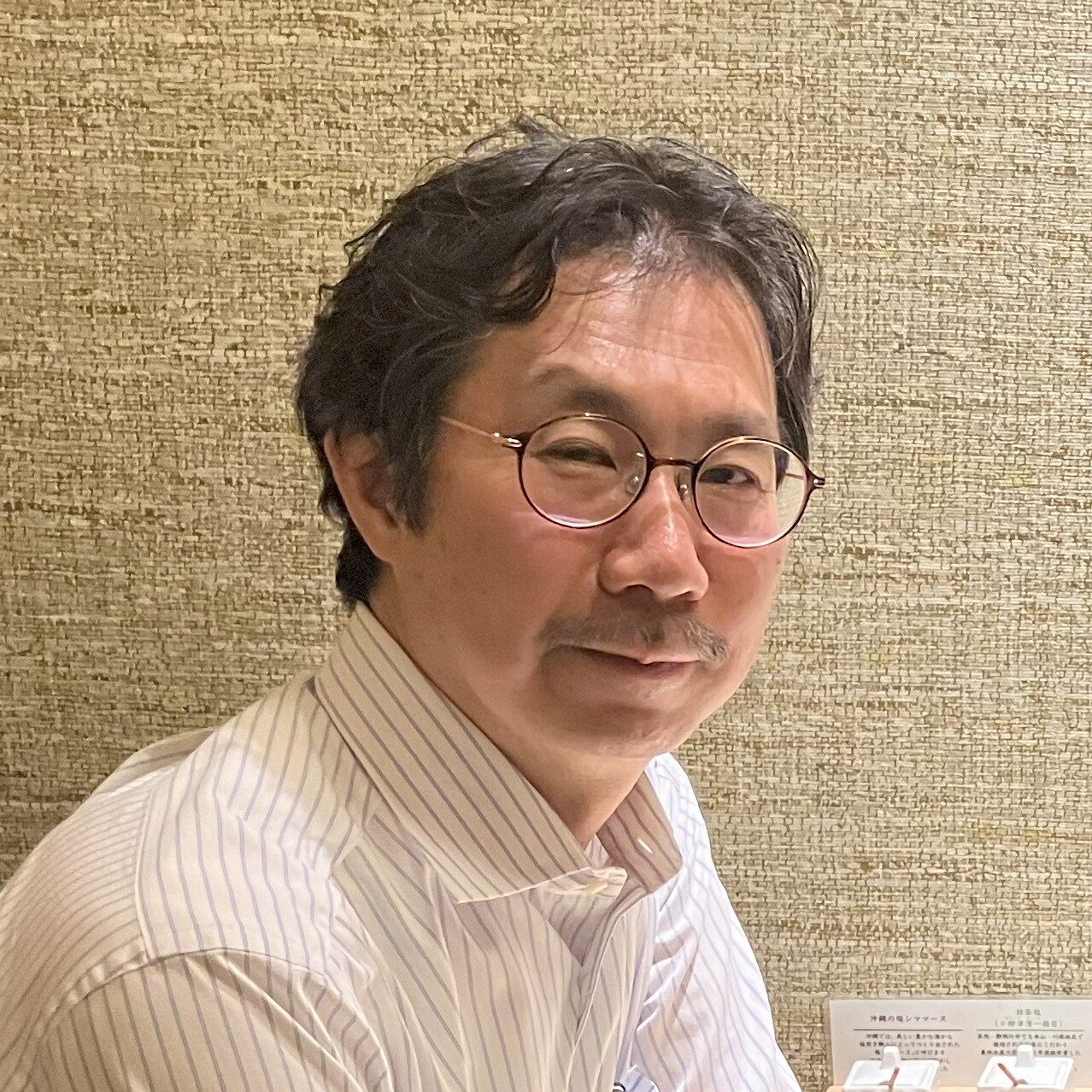Indigenous Peoples
Co-producing knowledge for indigenous well-being amid global arctic change

PI: Yuka Oishi (Kobe University)
The indigenous peoples of the Arctic have adapted flexibly to the harsh yet rich natural environment, developing their unique knowledge and skills. However, during the history of colonial rule, human connections and social and cultural infrastructure, which are essential for recovery from disasters, have been severely damaged. Furthermore, they currently reside in remote areas where public services and infrastructure are inaccessible, rendering their lives vulnerable to the impacts of climate change. At the same time, Arctic indigenous peoples have a significant voice in international forums, such as the Arctic Council, and their political activities and environmental movements have had a profound influence on governance and environmental management in the Arctic.
Previous studies have shown that as humans have modified the environment through development, thawing of permafrost and glaciers, disasters caused by extreme weather events, and ecological resource changes have become more severe, highlighting the importance of considering the interaction between humans and the environment. They also found that their well-being is affected by the global economy, international relations, information technology, migration and tourism, and that their well-being is realized in the framework of international partnerships between indigenous peoples, relationships with non-indigenous peoples, international law, and research ethics, in addition to the relationship between the state and indigenous peoples. Furthermore, in the academic world, as it aims for decolonization, indigenous peoples and researchers must engage in dialogue and collaboration, integrate traditional and scientific knowledge, and create new knowledge together about the Arctic environment, rather than having one-sided knowledge and data taken away by researchers.
Therefore, this research aims to clarify the impact of climate change on Arctic indigenous communities from the perspective of its interaction with the global economy and geopolitical changes, in collaboration with local people and natural scientists. We will then work with them to consider current social issues and evaluate current conditions and measures to achieve well-being. Specifically, our research will focus on the following three areas: (1) co-management of resources integrating TEK (Traditional Ecological Knowledge) and scientific knowledge, (2) evaluation of resilience through community development and informal economy, and (3) research ethics regarding open science and ethnographic material conservation. Through this research, we aim to uncover new possibilities and insights into how people should interact with nature by examining the diverse Arctic region.
-
 Ms. Ekaterina and her reindeer (Russia, KMAO)
Ms. Ekaterina and her reindeer (Russia, KMAO) -
 The ethnographer learns how to make bread from Ms. Ekaterina. (Russia, KMAO)
The ethnographer learns how to make bread from Ms. Ekaterina. (Russia, KMAO) -
 Fishing with Ms. Ekaterina. She finally acknowledged me once I was able to catch fish on my own. (Russia, KMAO)
Fishing with Ms. Ekaterina. She finally acknowledged me once I was able to catch fish on my own. (Russia, KMAO) -
 Ms. Ekaterina teaches me how to gather a reindeer herd. (Russia, KMAO)
Ms. Ekaterina teaches me how to gather a reindeer herd. (Russia, KMAO) -
 The Ethnographer brings lake ice for drinking. (Russia, KMAO)
The Ethnographer brings lake ice for drinking. (Russia, KMAO) -
 The Ethnographer becomes friends with Rome, Ekaterina's beloved reindeer. (Russia, KMAO)
The Ethnographer becomes friends with Rome, Ekaterina's beloved reindeer. (Russia, KMAO)
Sub-Theme Coordinator (Sub PI)
-
 Akihito Tachikawa (Mie University)
Akihito Tachikawa (Mie University) -
 Yuka Oishi (Kobe University)
Yuka Oishi (Kobe University) -
 Hiroki Takakura (Tohoku University)
Hiroki Takakura (Tohoku University)
Members
| Sub-Theme 1 | |
|---|---|
| Name | Research Institute |
| Akihito Tachikawa | Mie Univ. |
| Naoko Kagata | Mie Univ. |
| Mai Yoshimura | Nagoya Univ. |
| Hiroya Noguchi | National Museum of Ethnology |
| Tomoko Shimomura | Mie Univ. |
| Nobuhiro Kishigami | National Museum of Ethnology |
| Mikako Yamaguchi | Hokkaido Univ. |
| Kenichiro Hirose | Kagoshima Immaculate Heart Univ. |
| Sub-Theme 2 | |
|---|---|
| Name | Research Institute |
| Yuka Oishi | Kobe Univ. |
| Maho Araki | Kobe Univ. |
| Toshiaki Inoue | Josai International Univ. |
| Naotaka Hayashi | Univ. of Calgary |
| Ayumi Enomoto | Hokkaido Univ. |
| Birger Poppel | Univ. of Greenland |
| Sub-Theme 3 | |
|---|---|
| Name | Research Institute |
| Hiroki Takakura | Tohoku Univ. |
| Moe Terao | Tohoku Univ. |
| Kumiko Nakano | Tohoku Univ. |
| Kaori Ishii | Tohoku Univ. |
| Yuko Osakada | Chuo Univ. |
| Sakurako Koresawa | National Ainu Museum |
| Jugo Sato | Hokkaido Museum of Northern Peoples |
| Varvara Parilova | Tohoku Univ. |
| Donatas Brandsauskas | Vilnius Univ. |

